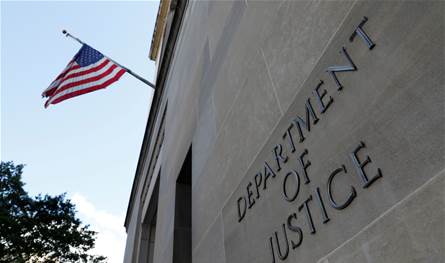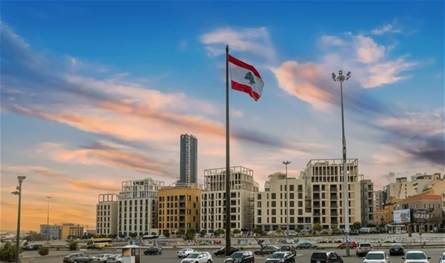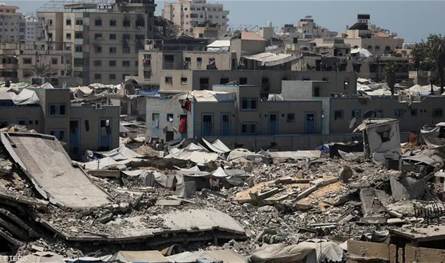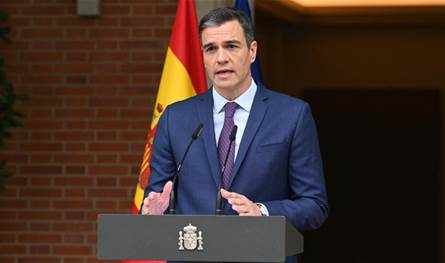The future of the West Bank … mystery and challenges
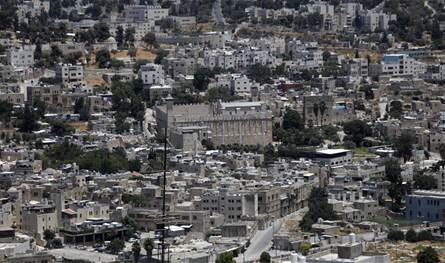
“Sky News Arabia” wrote: While Israel is busy with its war in the Gaza Strip, attention is directed towards the West Bank that enters a sensitive stage, with the escalation of Israeli moves aimed at including large parts of it, which raises questions about whether these plans are merely a political maneuvering to pressure the Europeans, or is it an actual threat that may change the features of the conflict?
According to the Axius website, the Israeli foreign and strategic ministers, Gideon Saar and Ron Dream, reported a number of their European counterparts that Israel would tend to include lands from the West Bank if these countries recognize a unilateral Palestinian state.
As for CNN, it revealed that Prime Minister Benjamin Netanyahu’s options range from partial and full annexation, with a special focus on the Jordan Valley region, which Israel sees as a strategic area.
These trends strengthen the approval of the Israeli Finance Minister, Btlael Smotrich, to implement the E1 settlement plan, aimed at isolating Jerusalem from its Palestinian surroundings, and separating the northern West Bank from its south, by building thousands of new settlement units.
Speaking to the noon program on Sky News Arabia, Israeli Knesset member Akram Hassoun reduced the seriousness of this plan, describing it as merely “political maneuvers” against European and global countries that initiated the recognition of the Palestinian state without consulting Israel. Hassoun said: “This plan is not serious but rather political exercises against all European and global countries that wanted to recognize the Palestinian state … Israel responds to these countries with opinions and with capabilities that will affect the establishment of the Palestinian state, in order to deter them as it happened in the past.”
He added that Israel sees in European steps a unilateral recognition, which it rejects and considers it directly against it.
Hassoun also touched on the internal conflict between the settlers and the Israeli army, stressing that Israeli courts have intervened more than once to hold settlers who attacked the soldiers, and some of them were even beyond the West Bank.
He pointed out that settlement projects are not new, saying: “The issue of settlement and construction was mentioned 10 or 15 years ago … In the end, the United States was interfering and the government respected this and retracted the construction of new housing units against Washington’s desire.”
He believed that Smotich’s statements reflect pressure to satisfy his electoral base mainly consisting of settlers, but he stressed in return that the government has not officially decided any project that annexed yet.
Hassoun stressed that Israel is a democratic country that allows multiple opinions, explaining: “Every minister has the right to pressure the government for its voters, but the final decision is going through government sessions and public protocols. Until now, no official decision in the government or parliament was taken regarding the inclusion of the West Bank.”
He also stressed that the courts, including the Supreme Court of Justice and the government’s judicial advisor, are able to review any decision in this regard, which puts additional obstacles to the possibility of actually implementing it.
On the seriousness of Netanyahu’s intentions, Hassoun said: “If Netanyahu wanted to include the West Bank, he would have done so long ago, he is the most prime minister who remained in office, and he had time. Therefore, I am not dealing with the issue seriously, but rather I see him as a political response to the steps of Europeans.”
According to Hassoun, the European recognition of a Palestinian state without engaging or negotiating Israel is an irresponsible behavior, because it ignores the need for a comprehensive peace process.
Hassoun did not neglect to address the internal Palestinian divisions, stressing that the absence of the unity of the ranks between the Palestinian Authority and the Hama movement hinders any opportunity to reach a political settlement.
In this context, he said: “I am a supporter of the two -state solution, but Hama refuses this solution and does not recognize the Palestinian Authority. Israel considers it a terrorist organization and seeks to eliminate it.”
He added that the events of Gaza in 2007, after the withdrawal of Israel, and the internal conflict that followed between Hama and Fatah, was an example of the absence of Palestinian consensus, which Israel uses to justify its refusal to recognize any independent Palestinian entity led by Ham.
In conclusion, the Israeli annexation plan seems closer to a political pressure paper in the face of European pressure, more than a project ready for immediate implementation.
But at the same time, the risk of annexation remains, especially in light of the continued settlement expansion that imposes new facts on the ground that may complicate any future negotiating path.
Israel waved the plans of annexation as a political card to deter European countries from recognizing the Palestinian state, while Akram Hassoun believes that the matter does not exceed verbal maneuvers. However, the ongoing settlement policies on the ground may make these “maneuvers” a tangible reality in the future, putting the West Bank in front of more complicated scenarios in the absence of a unified internal Palestinian solution.
The post The future of the West Bank … mystery and challenges appeared first on 961 tobay Lebanon today.


